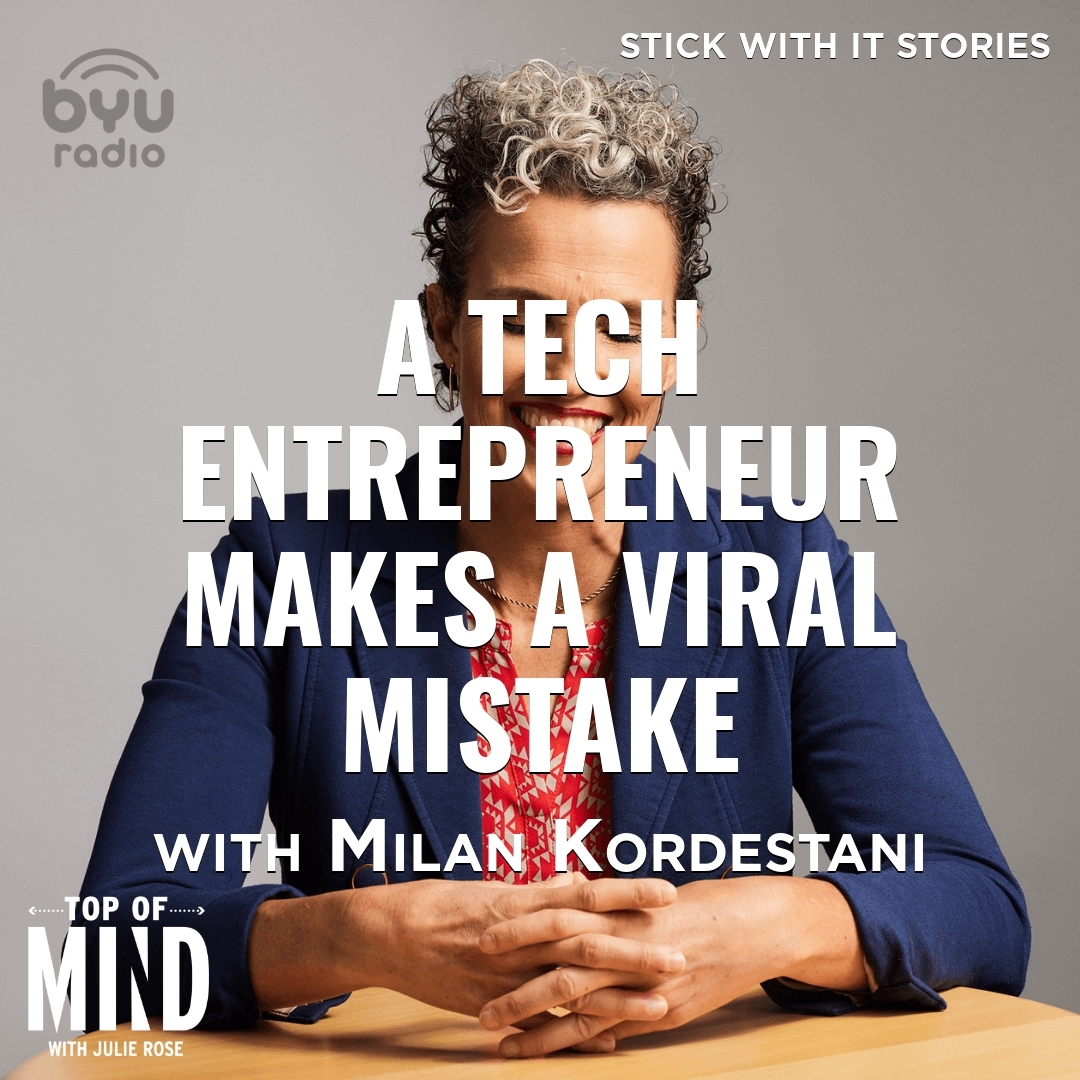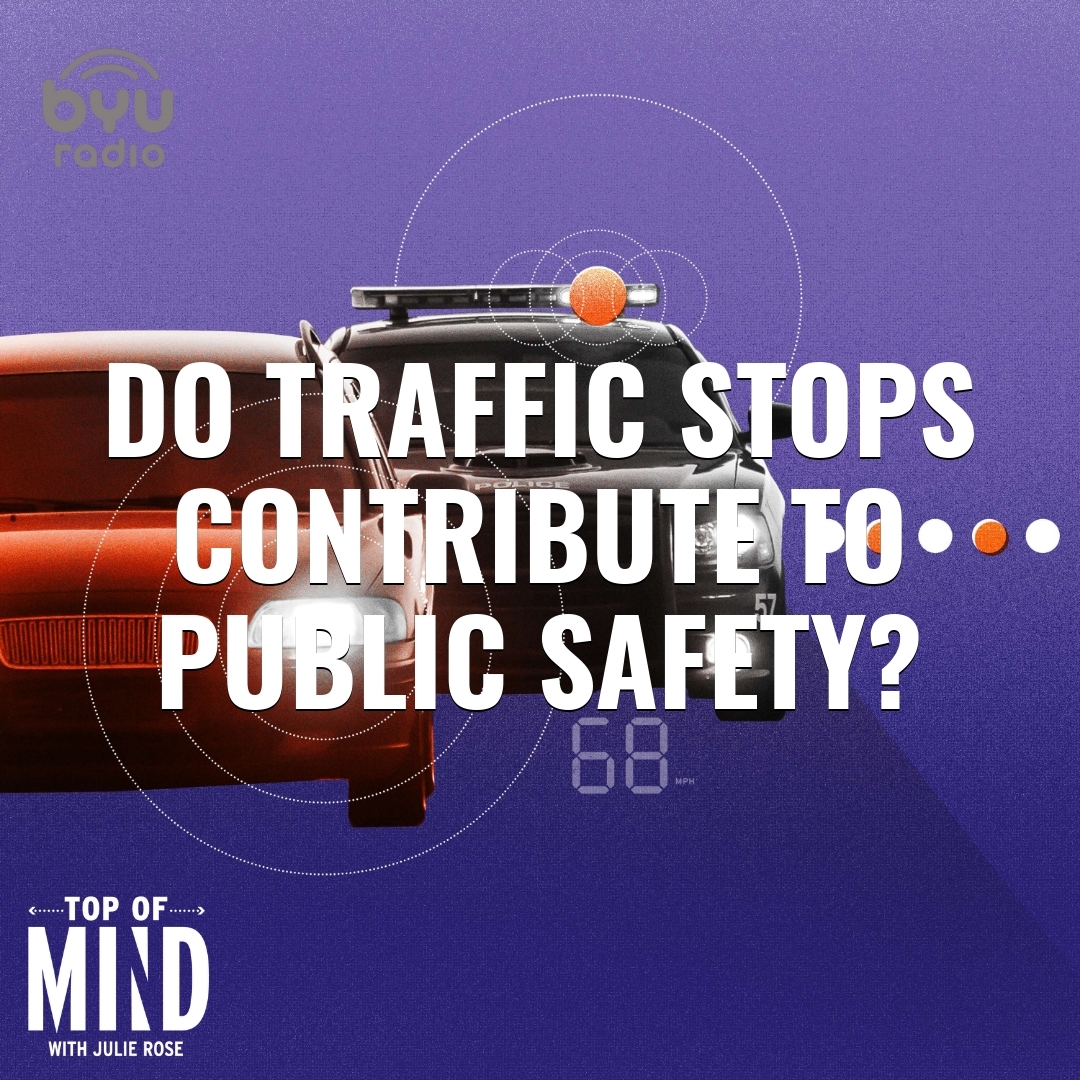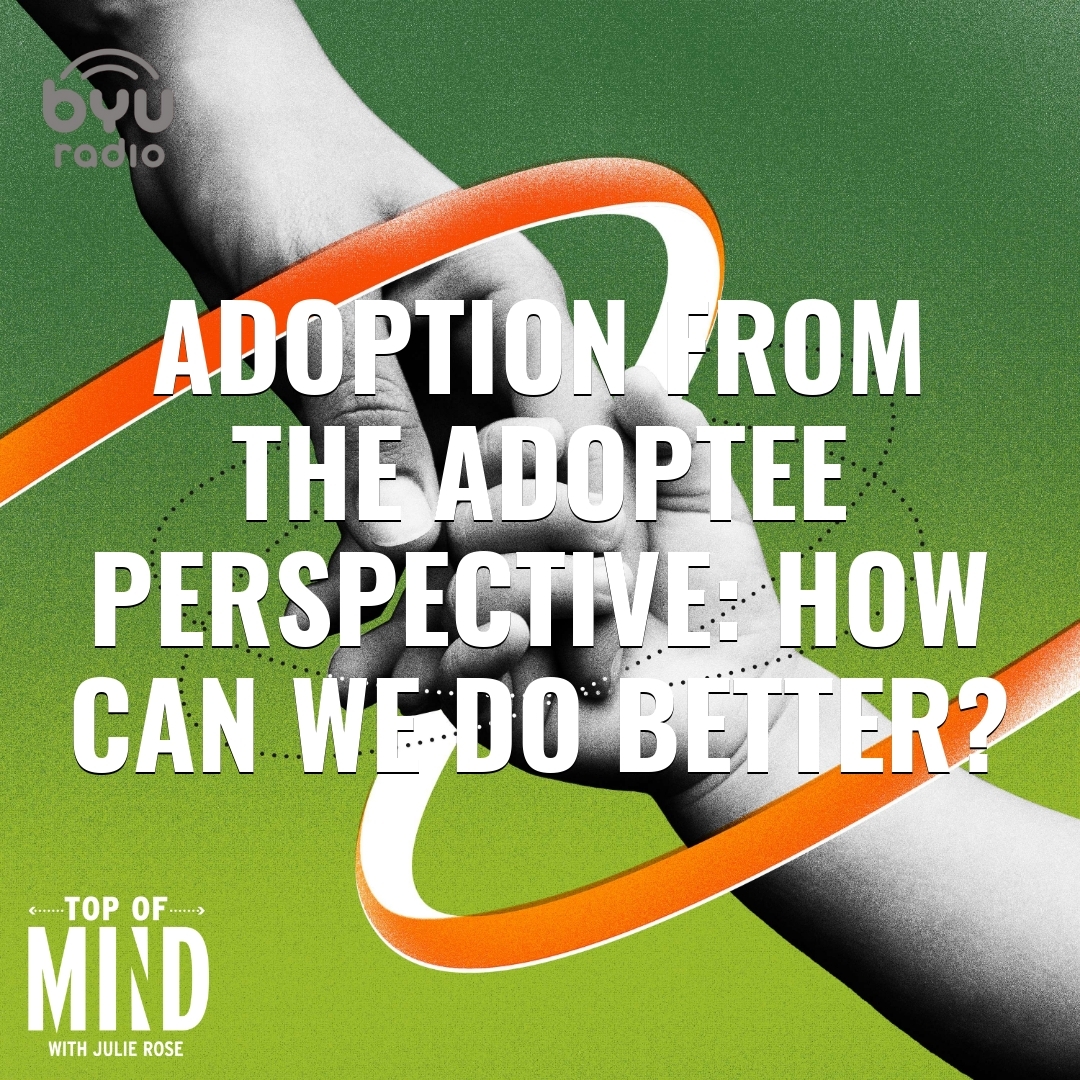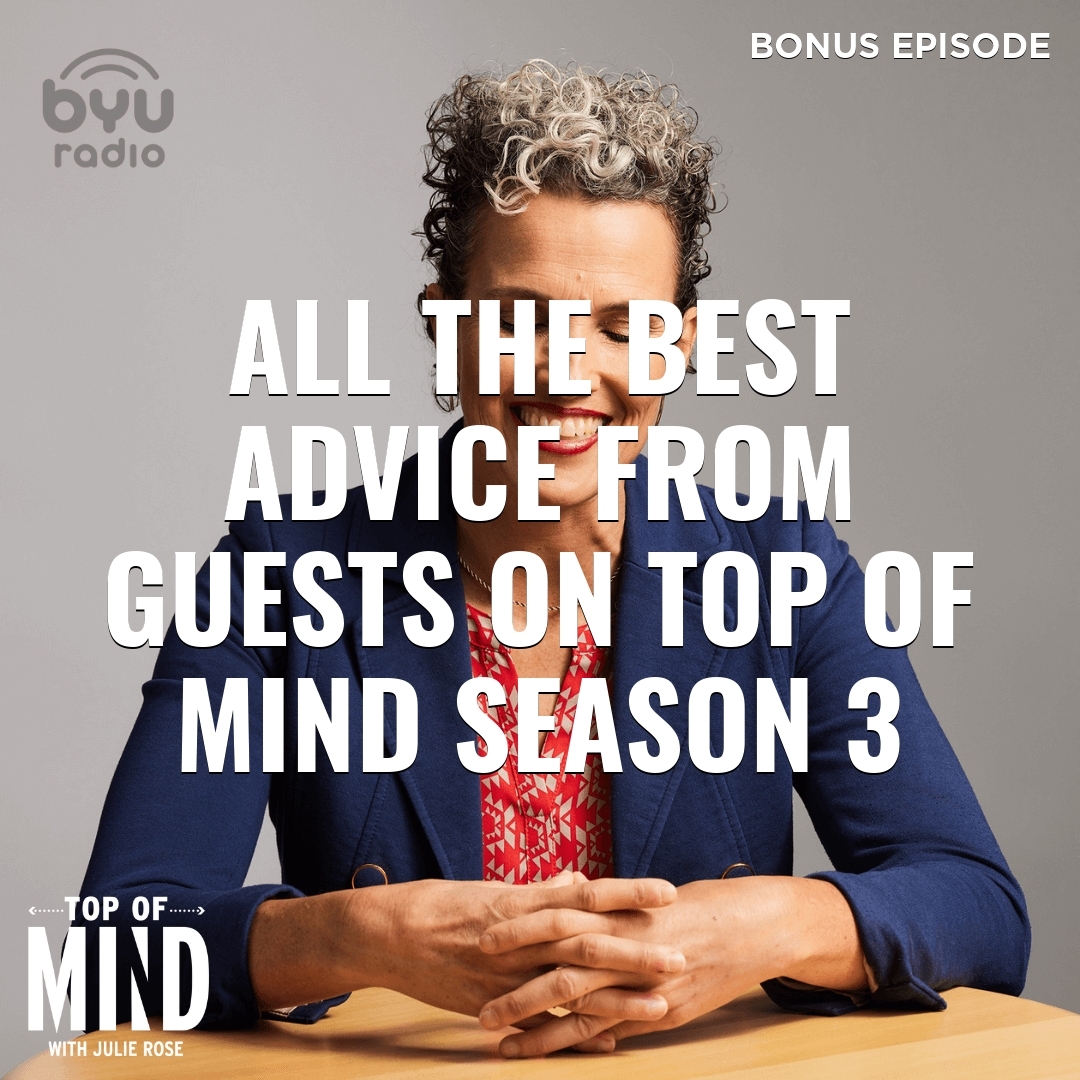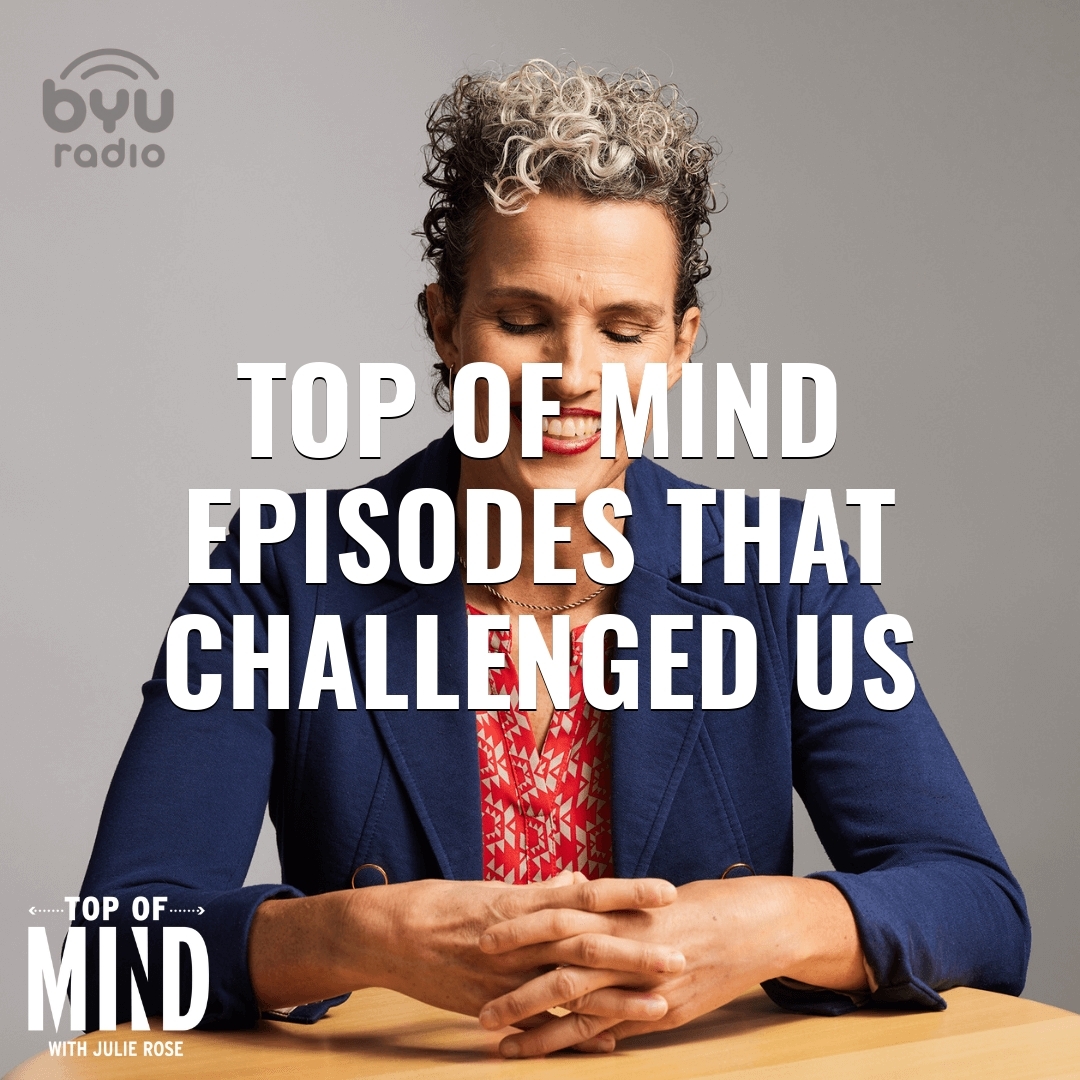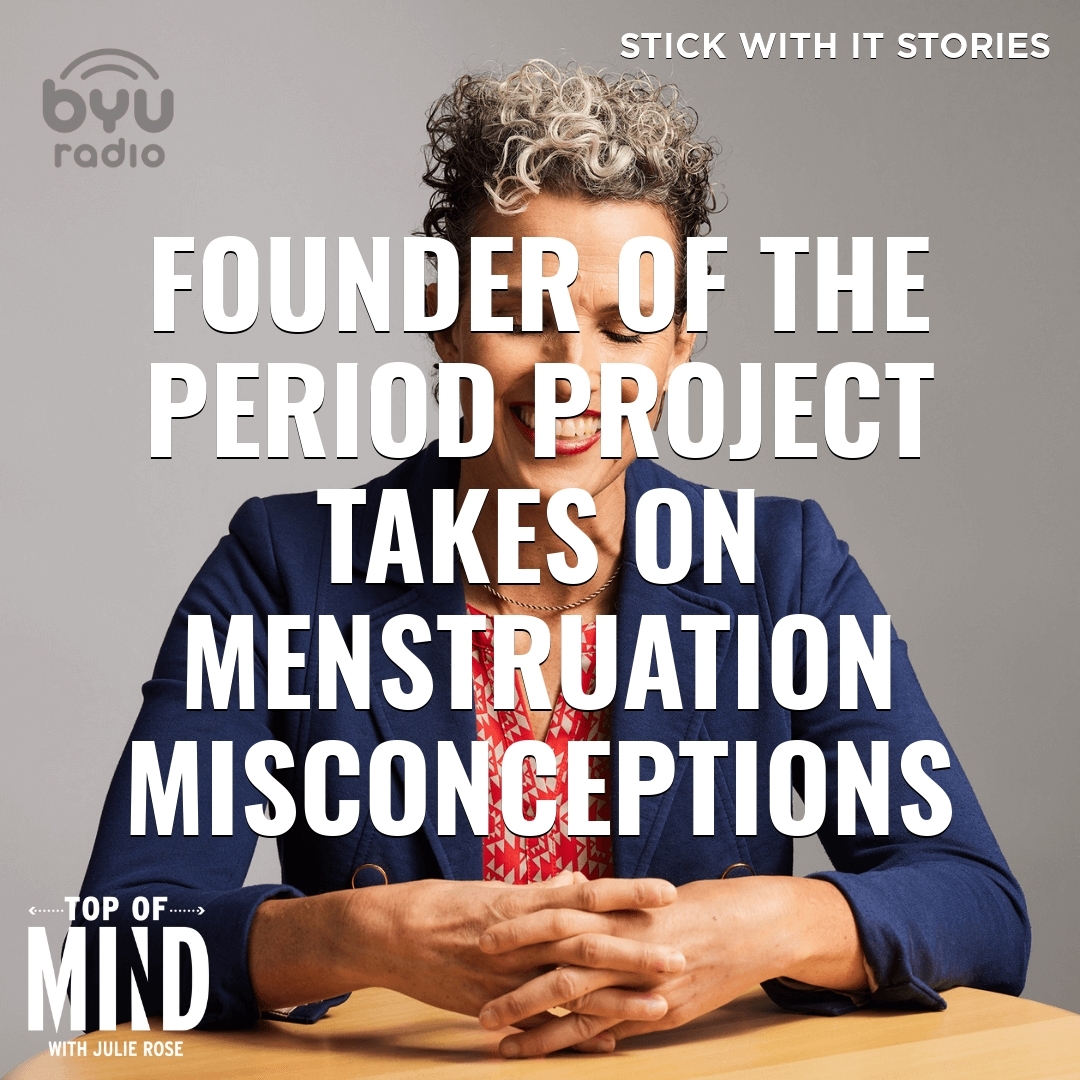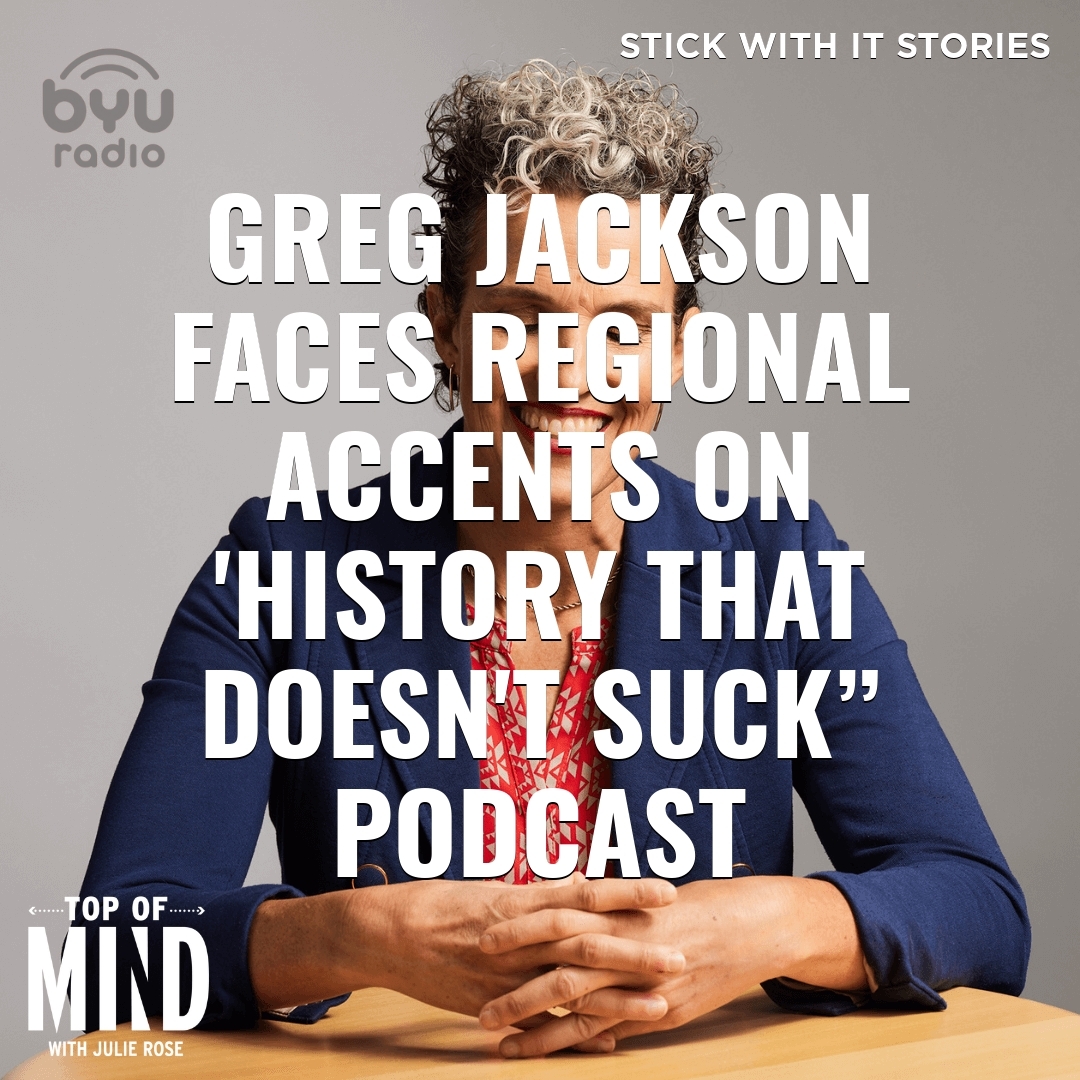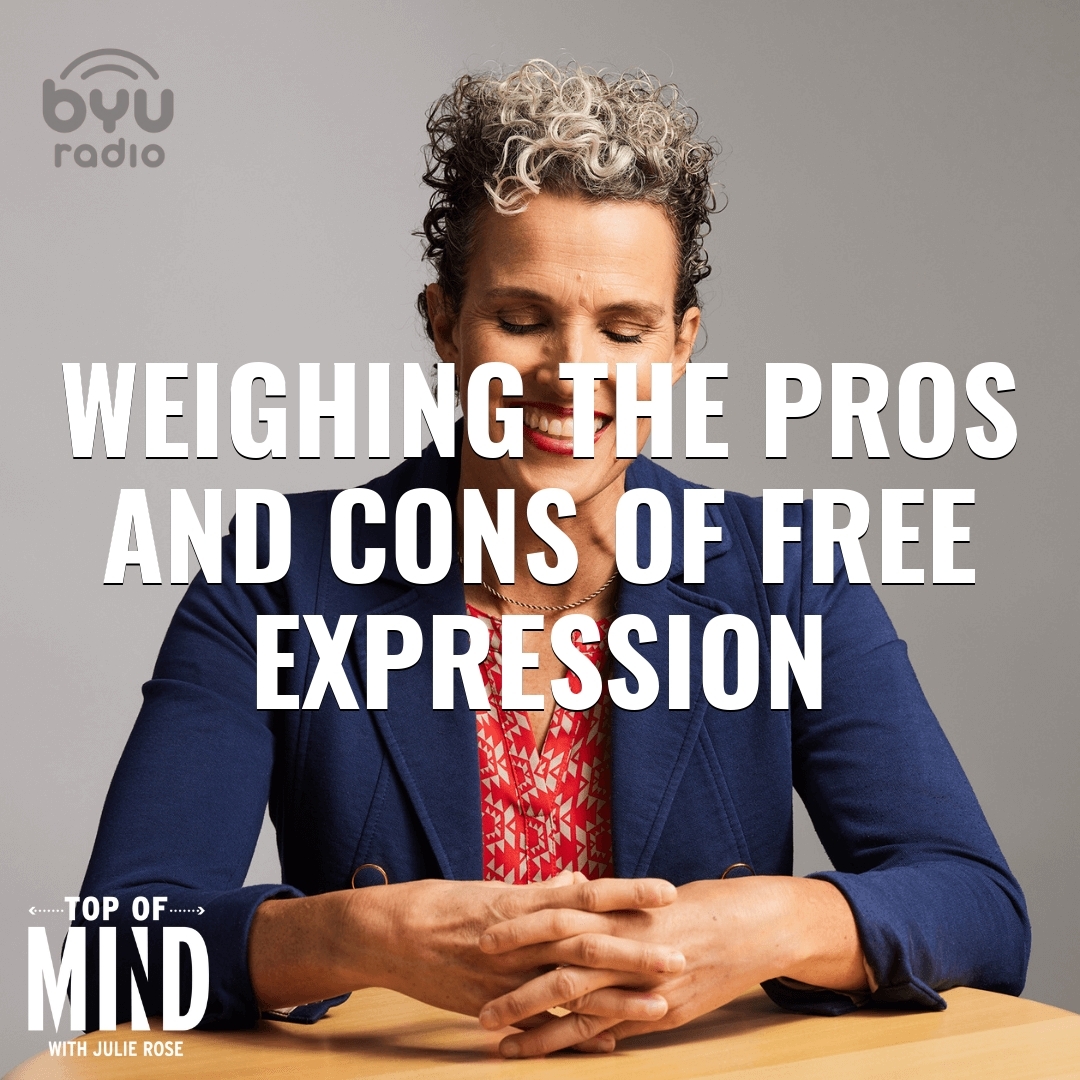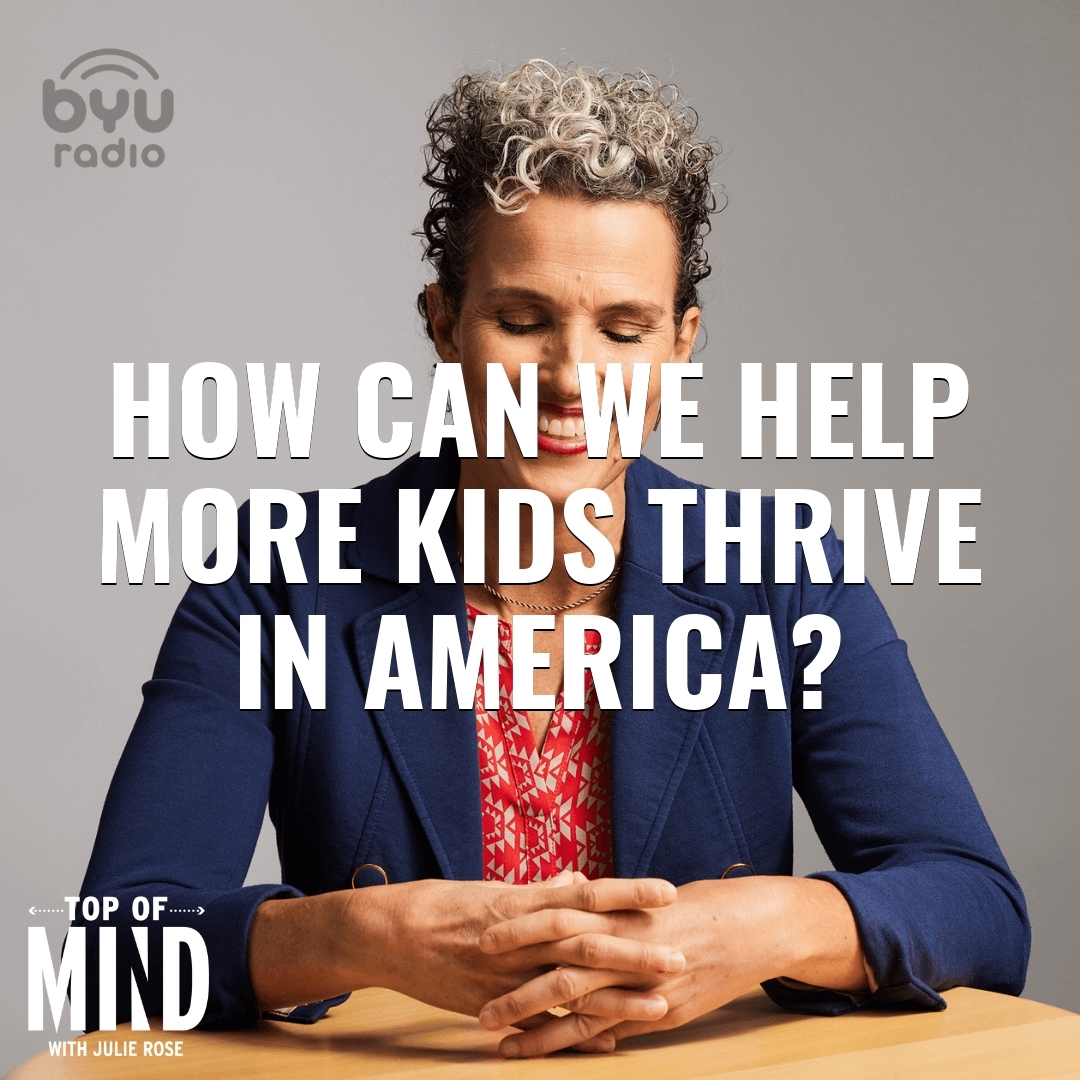Tackling tough topics in a way that will help you feel more empathy and empower you to become a better citizen, kinder neighbor, and more effective advocate. For people who are turned off by the divisive nature of the news, but still want to engage with important issues. Hosted by journalist Julie Rose, Top of Mind is a production of BYUradio.
Our “Stick With It” series on the Top of Mind podcast continues with Milan Kordestani – tech entrepreneur and author of “I’m Just Saying: A Guide to Maintaining Civil Discourse in an Increasingly Divided World.” Kordestani was already preaching the importance of civil discourse when he tweeted something during the pandemic that went viral and caused him to realize he’d fallen short. He tweeted an apology and recommitted himself to approaching difficult topics with humility and curiosity. “Civil discourse doesn’t always mean agreeing or feeling comfortable,” says Kordestani. His new book, “I’m Just Saying” is a guidebook for learning to lean into the discomfort of challenging topics.
Getting pulled over is the most common encounter Americans have with police, but how much do traffic stops really contribute to public safety? On a typical day, more than 50,000 of us see those flashing lights in our rearview, so we generally assume that enforcing traffic laws is an essential part of policing and public safety. Do traffic stops contribute to public safety as much as we expect? It’s clear the effects are not equal: across the nation, drivers of color are much more likely to get pulled over, and a troubling number of incidents where Black men are killed by police, start with a traffic stop. In this podcast episode, we’ll hear perspectives from both sides of the car window and explore how traffic enforcement could better ensure safety for all.
We tend to view adoption in America as a win-win situation: a child in crisis is placed with new, stable parents who want to build a family. Everyone is finally in a position to thrive. That narrative tends to be fairytale-like. And it doesn’t resonate with many adoptees. In this episode, we hear adoptee perspectives on adoption and how we – as a society – can do better. We talk to a domestic infant adoptee from the baby scoop era, a person adopted out of the foster care system, and an international, transracial adoptee. And what we've come to find is that no matter when or how adoptions happen, assumptions about what's best can miss the mark. How can we do better by those impacted by the adoption process and create a system that enables children and families to thrive?
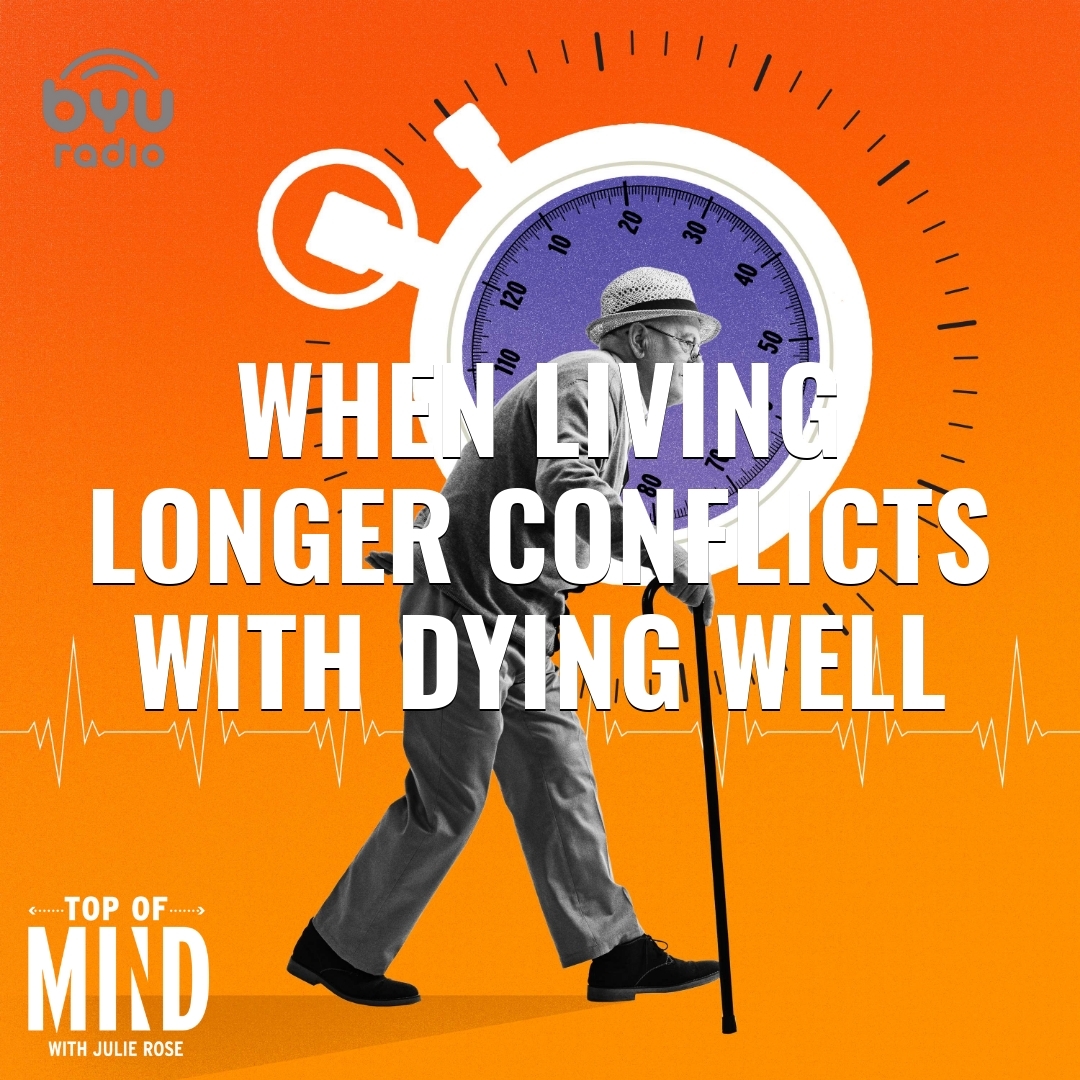
Dying is inevitable. But medical advancements have made it possible to cheat death in many instances that would have been quickly fatal not so long ago. So it’s become easier to avoid thinking about death and default toward saying “yes” to whatever medical intervention will extend our lives. But when does living longer conflict with dying well? In this podcast episode we’re assessing the common assumption that we can extend life at all costs and still have a “good death” when the time comes. A hospital physician explains the complicated financial and emotional incentives that lead doctors and patients do too many tests, prescriptions and procedures that ultimately do more harm than good. An ICU doctor describes the risks of relying on a “living will” to guarantee a “good death” and what to do instead. If you’ve spent a life saying “yes,” by default, to everything medicine has to offer, it’s traumatic – and not at all straightforward – to know when to start saying “no.” We also hear how a man with terminal cancer navigated end-of-life decisions and what it took for his caregivers to deliver on his wishes for a good death in hospice.
As a final bonus to finish Top of Mind Season 3 “Finding Fairness” we’ve compiled the best insight from guests throughout the season on how to be a better citizen, kinder neighbor and more effective advocate for the things we care about. We're not a "how-to" podcast with checklists and action items. We probe for more clarity and empathy on the topic and let you decide where to go next. But our guests often do offer practical advice that’s pretty great. So here it is for you in one quick listen!
We’re wrapping up Season 3 of Top of Mind “Finding Fairness” with a look at some of the Stick With It moments it delivered for our team. One of our goals for each episode is to find perspectives that will challenge us to examine our own views more closely. Often that’s uncomfortable, but if we stick with that discomfort, it can lead to finding new empathy or greater clarity. In this podcast episode, Julie and other members of the Top of Mind team reflect on episodes during Season 3 that challenged them to examine their own views and behaviors more closely around topics including prison reform, pollution, gun violence, healthcare, and free speech.
Did you have a Stick With It moment listening to an episode of Top of Mind’s Season 3 about “Finding Fairness?” We’d love to hear it. Email your story to topofmind@byu.edu.
Our “Stick With It” conversation series on the Top of Mind podcast continues with The Period Project founder Emily Bell McCormick’s story of realizing some common misunderstandings that prevented male legislators from taking menstrual public health policy needs seriously. Once she took the time to really listen to the concerns lawmakers had passing a law to make period products available for free in public schools and state buildings, she was better able to address their misconceptions and get the law passed.
Our “Stick With It” conversation series on the Top of Mind podcast continues with historian Greg Jackson’s story of committing to get the regional accents right on his podcast “History That Doesn’t Suck.” A few years ago, his audience had grown so large that he was immune to most listener criticism. But a message from “Lucy in Tennessee” about the Southern accent Jackson affected in his storyteller cut through the noise. Jackson chose to stick with the discomfort of that criticism and step up his accent game. His podcast is better for it.
The right to free speech is considered a cornerstone of American democracy, but it can also be used to inflict harm. In this era of social media and polarized politics, we are constantly weighing the pros and cons of free expression. Is being offended by a statement the same as being harmed by it? Where should we draw the line between protecting one’s right to speak freely and ensuring the well-being of others? In this podcast episode, a reformed white supremacist explains why he turned to hate speech and how he's trying to make amends for the harm he caused. A legal expert debunks common myths about the First Amendment right to free speech and explains why universities and K-12 schools struggle to balance that right with the need to keep students safe. A newspaper opinion editor shares insights on learning to disagree respectfully and an advocate for civility in public discourse explains how to foster productive free expression in our communities.
Children in America face economic, emotional and educational challenges that only worsened during the pandemic. They are the poorest age group in the country. America has the highest rate of children living in single parent households anywhere in the world. U.S. teens are in the midst of a mental health crisis marked by depression, anxiety and suicide. And the COVID-19 pandemic caused big learning gaps. How can we help more kids thrive in America? In this podcast episode, we’ll hear how a school in Iowa is training teenagers to be first responders for peers in emotional crisis. An MIT researcher urges us to focus less on what kids lost during the pandemic and lean into lessons that can make schools even better than before pandemic. Then, a leading researcher on child well-being explains why we need to give absent fathers more attention. We want all children in America to thrive and we know kids are amazingly resilient. How can we do better by them?

